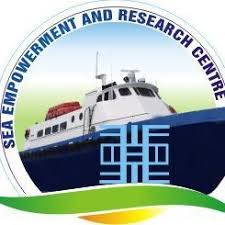Maritime research group under the auspices of the Sea Empowerment and Research Centre is against exorbitant fee increments in the current port system, given the already challenging environment.
In a position paper issued and signed by its Head of Research, Dr Eugene Nweke, SEREC explained that recapitalisation, consolidation, or merger/acquisition of customs licences as a method of ensuring effective licensing regulations may entail lengthy processes and timing.
The PUNCH reported that maritime stakeholders have expressed concerns over a possible hike in the licensing renewal fee for customs agents, citing fears that it may fuel inflation.
According to a report, the Nigeria Customs Service has announced plans to review the licensing renewal fees for licensed customs agents, with a new structure set to take effect from January 2026.
Reacting to this, SEREC recommended a fair and reasonable increment that takes into account the needs of small and medium-sized enterprises.
The group called for a more streamlined and efficient approach to licensing reform.
“We advise against exorbitant fee increments in the current port system, given the already challenging environment. Instead, we recommend a fair and reasonable increment that takes into account the needs of small and medium-sized enterprises. We caution against recapitalisation, consolidation, or merger/acquisition of customs licences as a method of ensuring effective licensing regulations, as this may entail lengthy processes and timing. Instead, we recommend a more streamlined and efficient approach to licensing reform,” SEREC stated.
SEREC urged the NCS to consult a broad range of stakeholders, including the Nigeria Shippers Council and the professional regulatory council, in any decision-making process related to fee increments or licensing reform.
The body says this will help ensure that the interests of all stakeholders are taken into account and that the industry is not unduly burdened.
It emphasised that licensing fees should be set at a level that balances the need for regulatory oversight with the need to promote competition and efficiency in the customs clearance process.
“A possible solution could be to implement a fee structure that is tiered based on the type of service or level of licence, with smaller businesses and new entrants paying lower fees. Licenses could be categorised based on the type of services offered, such as import/export, customs brokerage, and freight forwarding,” it stated.
SEREC, however, advised that a tiered system could be implemented, with different levels of licences based on factors such as experience and specialisation.
“Licensing requirements should focus on demonstrating competence in customs procedures, tariff classification, valuation, and origin determination. Licence holders should be required to undergo ongoing training and professional development to maintain their licences,” it added.














